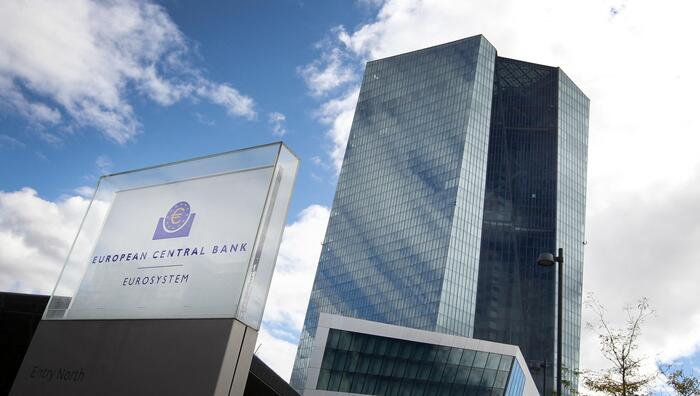The economy of the euro area, in the fourth quarter of 2022 and in the first quarter of 2023, "could suffer a contraction due to the energy crisis, high uncertainty, the weakening of global economic activity and more restrictive financing conditions" and with risks "oriented to the downside", but "any recession would be relatively short and mild".
The ECB writes this in the Economic Bulletin, which by contrast notes "positive signals" from employment which increased by 0.3% in the third quarter, and from unemployment to a new all-time low of 6.5% in October.
"Price pressures remain strong in all sectors", notes the ECB.
In the period between September and mid-December 2022, amid expectations of a more marked tightening of monetary policy, "longer-term interest rates grew, overall, only slightly" and "spreads on government bonds narrowed" .
This was noted by the ECB in an analysis of financial market trends in the Economic Bulletin, which focuses on the performance of Italy and Greece, which seems to prove the lie to those who feared a sharp rise in spreads between announcements of rate hikes and the dismantling of Qe.
"The spreads on ten-year Italian and Greek government bonds - notes the document - have fallen, respectively, by 18 and 22 basis points".
According to the ECB, "interest rates must still increase significantly at a constant rate to reach sufficiently restrictive levels to ensure a timely return of inflation to the 2% objective in the medium term".
The central bank writes it in the Bulletin, accounting for the decisions of the Governing Council of 15 December, and confirming that from March the portfolio of bonds purchased over the years with the 'App' program "will be reduced at a measured and predictable pace" equal, on average, to 15 billion euros per month until the end of the second quarter of 2023 and which will then be determined over time.





/cloudfront-eu-central-1.images.arcpublishing.com/prisa/C3LDLHDAXBBCFCHWBPELHN64FU.jpg)







